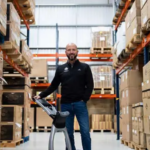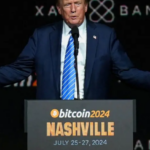President Donald Trump’s decision to impose tariffs on imports from neighboring Canada and Mexico has sparked concerns of a trade war, with critics warning that the move could lead to price increases on a range of everyday products in the U.S. While the White House insists that the tariffs are aimed at protecting American industries, experts predict they could lead to higher costs for U.S. consumers. Here are six key areas where tariffs could have a significant impact on prices.
1. Cars
North American car assembly often involves the back-and-forth movement of parts across the U.S., Canadian, and Mexican borders. With new tariffs on imported components, manufacturers are expected to pass those extra costs onto consumers. According to TD Economics, car prices could rise by around $3,000 (£2,400), disrupting decades of seamless trade in the automotive sector.
2. Beer and Spirits
Popular Mexican beers such as Corona and Modelo could see price hikes as importers may opt to increase costs instead of absorbing the tariffs. Modelo was the number one beer brand in the U.S. in 2023, and its price could climb as a result of these tariffs. The spirits industry could also feel the pinch, especially for U.S.-produced bourbon, Tennessee whiskey, and Canadian whisky, as production is closely tied to their countries of origin. If tariffs increase production costs, whiskey and tequila lovers may find themselves paying more for their favorite drinks.
3. Homes
The U.S. housing market could face higher costs as well, as homebuilders rely heavily on Canadian lumber. New tariffs on Canadian imports could drive up the cost of materials, slowing construction and increasing the price of new homes. The higher costs could also deter developers from launching new housing projects, making homeownership more expensive for Americans.
4. Maple Syrup
Canada produces approximately three-quarters of the world’s maple syrup, with Quebec as a key producer. The imposition of tariffs on Canadian goods could lead to a reduction in maple syrup imports or make them more expensive. Economists expect that this could result in price hikes for the beloved breakfast staple, which could upset many who enjoy Canadian maple syrup on their pancakes.
5. Fuel Prices
Canada is the largest foreign supplier of crude oil to the U.S., and the new tariffs could impact energy prices. While Canada faces a 10% tariff on oil exports to the U.S., any retaliatory measures by Canada could affect the supply of heavy crude, which U.S. refineries use to produce gasoline, diesel, and jet fuel. If Canada reduces its shipments, U.S. consumers could face higher fuel prices at the pump.
6. Avocados
Mexico’s warm climate supports large-scale avocado production, and around 90% of the avocados consumed in the U.S. come from there. If tariffs lead to higher import costs or a reduced supply, avocado prices could spike, especially during peak demand periods like Super Bowl Sunday, when guacamole is a popular dish in many American households.
While the U.S. has temporarily suspended tariffs on Mexico for a month, the taxes on Canadian goods are set to take effect soon. Both Canada and Mexico have warned of strong retaliation if negotiations fail, leaving U.S. consumers facing an uncertain future at the checkout. If tariffs result in higher prices and reduced imports, it may highlight the fragility and deep integration of North America’s supply chains.









